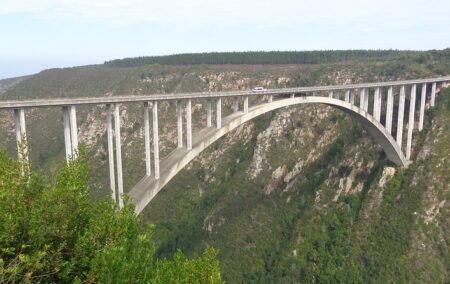Public-private partnerships should be adopted to stimulate rapid investment in repairing South Africa’s rail network and its ports as an essential step in generating economic growth and creating jobs.
So says the Institute of Race Relations (IRR) in its latest #WhatSACanBe paper, Infrastructure: Connect Communities, Create Wealth.
In a statement, the IRR points out that investors have long decried the state of public infrastructure in South Africa as one of the highest barriers to investment, job creation and economic growth.
“The World Bank’s 2023 Container Port Performance Index laid South Africa’s failure in port infrastructure bare for the globe to see: Gqeberha ranked as South Africa’s best-performing port at 391st, Durban at 399th, Ngqura at 404th, and Cape Town at 405th.”
The World Bank report notes that ports can move up by as much as 200 places if they improve factors such as terminal capacity, landside connectivity, cost, and so on.
“Addressing South Africa’s poor port and rail performance is the focus of the latest #WhatSACanBe paper. It proposes that the Government of National Unity (GNU) move with speed in concluding public-private partnerships to unleash investment and growth for the mining and agricultural sectors, which are most reliant on this infrastructure.”
The IRR notes that in July 2023, Transnet announced a joint venture with the Philippines-based International Container Terminal Services to “develop and upgrade” Pier 2 at Durban Container Terminal, which accounts for 46% of South Africa’s port traffic.
“Extending this public-private collaboration into the rail sector by allowing mining companies to take ownership of and develop sections of the railway will give businesses greater opportunities to export their products, and grow the economy.”
Says IRR researcher Chris Patterson: “In 2021, a major coal miner said it had ‘lost’ millions of tons of shipments due to ‘transport’ issues. South Africa can ill afford to let railways and ports continue to be the victims of declining public infrastructure investment. The GNU has made infrastructure development part of the Medium-Term Development Plan’s Strategic Priority 1. The #WhatSACanBe Infrastructure paper provides the roadmap for the GNU to unleash sectors to help grow the economy.”
The paper also proposes establishing a specialised Railway Police Unit to protect this critical economic infrastructure.
Patterson continues: “If the kilometres-long lines of coal trucks at Richards Bay and months-long delays at Durban isn’t motivation enough to improve South Africa’s port infrastructure, not doing so will mean the country will continue to lose valuable income and further investment.”

